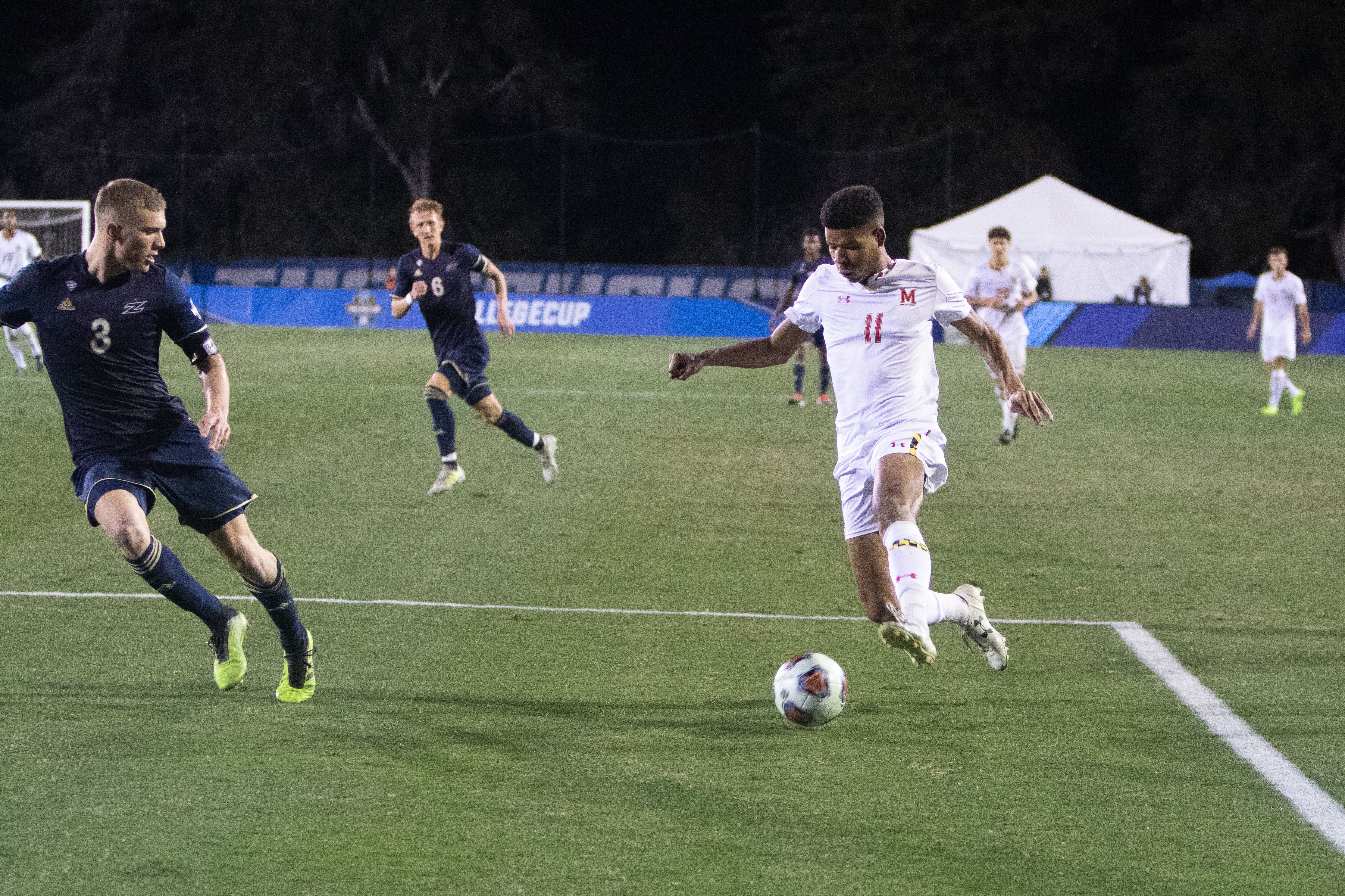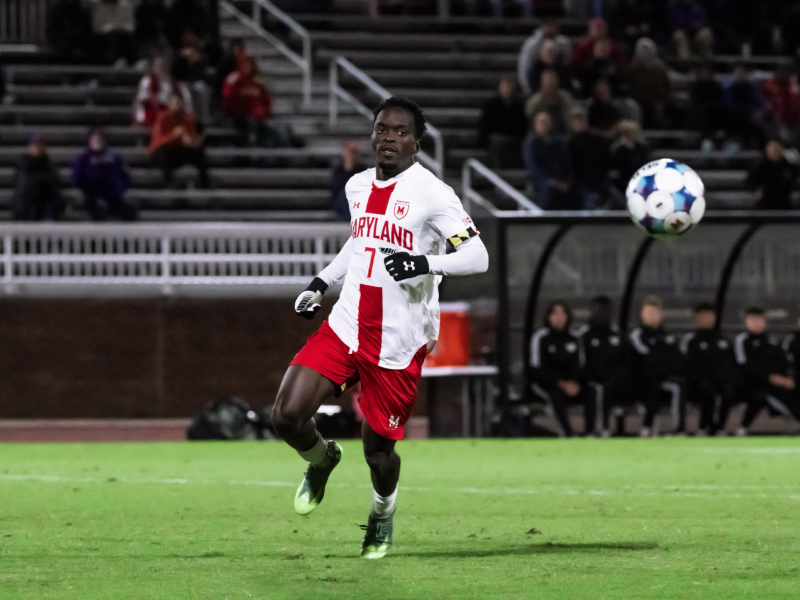SANTA BARBARA, Calif. — When the second half of the national championship began, three Maryland men’s soccer starters remained on the bench.
The Terps’ starting lineup never changed for any of their five NCAA tournament games, and each time, the same 11 players trotted back onto the field to begin the second half. But not this time, not in the biggest game for the program in five years.
Forwards Eric Matzelevich and DJ Reeves and Matt Di Rosa played well in their limited time off the bench in the first half against Akron, justifying coach Sasho Cirovski’s decision to leave the team’s starting attackers on the sidelines.
Di Rosa scored a goal in the semifinal and drew a penalty in the final, while Reeves provided a dramatic spark in the championship to showcase Maryland’s depth when it needed it the most in the College Cup.
“The game changed for us when we added three of our substitutes in the first half,” Cirovski said. “They really energized us. That’s why we started them in the second half.”
[Read more: Maryland men’s soccer wins 4th national title with 1-0 win over Akron]
As the season progressed, Maryland’s roles became consistent. Goalie Dayne St. Clair, the backline and midfielder Andrew Samuels never came off the field the entire tournament. Midfielders Eli Crognale and Amar Sejdic sat for 27 combined minutes.
Midway through the first half in each round, though, Cirovski switched out his three starting forwards for a fresh batch of legs. Matzelevich entered for Sebastian Elney; Di Rosa for William James Herve; and Reeves for Paul Bin.
They stayed on for the rest of the half, giving the starters a chance to regain energy for the second 45-minute period. But in the College Cup, that three-man rotational unit did more than just give the starters a break.
“This is Maryland soccer,” Cirovski said. “You never know when you’re going to be asked to play a huge role.”
[Read more: Amar Sejdic took Maryland soccer to the national title game. Then he won it.]
Just two minutes into his appearance against Indiana, Di Rosa scored his first career goal in an eventual 2-0 win to advance to the final. In the championship, Di Rosa got tripped in the box to earn Maryland’s second — but unconverted — penalty kick.
While Maryland and Akron entered halftime scoreless, the Zips felt their performance start to decline after the Terps’ three subs entered.
“We went into their game and were chasing a little bit,” Akron midfielder Skye Harter said. “That made it harder for us to turn the tide.”
Reeves stimulated that shift in momentum. He only played 15 minutes in the previous two games combined, but he provided Maryland’s best chance in the first half, and finished with a season-high two shots on goal.
On his first, he evaded his defender in the box and set up an uncontested shot on goal. It required goalkeeper Ben Lundt to make an acrobatic save on what was nearly Reeves’ first goal of the season.
In the second half, Reeves and the forward subs remained in the game and were still on the field 11 minutes later for the decisive goal.
Reeves pressured to win the second ball on a free kick and forced a subpar emergency clearance in the box. The next attempt at an Akron clearance — a high kick that struck Johannes Bergmann — wound up earning the Terps the penalty kick that won them the national championship.
“I felt we started a little better in the second half,” Zips coach Jared Embick said. “They just make a hustle play on us … and took the momentum from us.”
Quality minutes from the bench played a vital role for Maryland in stealing that momentum. The Zips used nine reserves in their 5-1 win in the semifinals, while Maryland only used the three backup forwards.
The difference in rest hardly mattered, as those three reserves — led on Sunday by Reeves — immediately sparked Maryland’s offense while Akron never regained control.
“He’s a senior who hasn’t maybe gotten as many minutes recently, whose battle injuries his whole career,” Cirovski said. “I thought he changed the game for us when he got in … he was exceptional.”



